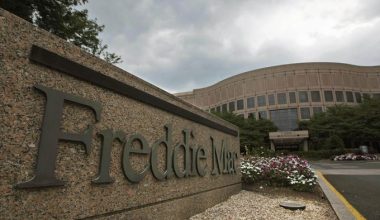Every realtor and homebuyer knows the market is competitive where a good house is concerned. This means buyers must be smart in attracting a seller with a compelling offer and high good faith deposits. Basically, houses in need of little or no repairs, situated in well-developed or competitive areas, attract several buyers and if you must emerge the buyer, you need to stand out. Luckily, the good faith deposits have enabled a lot of homebuyers to get their dream homes. Additionally, tenants also record greater chances of securing great apartments with a good faith deposit in NYC and other states. This guide is an overview of what a good faith deposit is as well as everything you need to know should you desire to back out of a deal with home sellers, and homebuyers like Ryan homes.
What Is Good Faith Deposit?
A seller who accepts a buyer’s offer on his house may likely pull the property from the market while the transaction proceeds to a close. But before the contract becomes binding, the buyer must have made a down payment. Down payments are known as good faith deposits or earnest money in real estate. It represents a buyer’s keen interest in a property as well as his commitment to buying the property. The seller receives good faith deposits before the contract is signed or becomes binding.
Usually, it is part of a buyer’s offer to a seller. However, a homebuyer putting down a good faith deposit does not guarantee him as a buyer. It does give him a good chance of buying the house but sometimes the deal fell through. When this happens, the seller will have to relist the home and start over, which may be quite costly. However, there are several reasons why a house deal will fall through irrespective of the 1-3% sales price given as good faith deposits. This includes a failed mortgage approval, the result of a home inspection, home sale contingency, and several others. Moreover, the seller can decide not to take his house off the market list. They just simply accept your offer and keep the door open for other offers.
How Does Good Faith Deposit Work?
When a homebuyer sees a house he will like to buy, he approaches the seller with his offer. The seller will go through the offer and is free to accept, reject or present a counter offer. When both parties fully accept the conditions presented in the offer, they sign the contract. But before the contract is signed, the homebuyer will have made a good faith deposit on the property in question. Ideally, good faith deposits depict two things.
The first is his serious intent while the second is his commitment to the deal. Also, both parties must review the terms of the good faith deposit to determine what happens in case the deal did not pull through. This is crucial in protecting the interest of both parties. The seller will foot the cost of relisting his property if he pulled it off the market. At the same time, the buyer will have to lose the good faith deposits if he did not include a contingency in his offer.
What Makes an Offer Not to Pull Through?
There are several reasons why a deal will not pull through in reals estate after putting down a good deposit. The following are some of these;
1. A Failed Mortgage Application
If the homebuyer intends to buy the house with a mortgage, he can make the good faith deposit while waiting for the mortgage provider to approve the loan. Mostly, buyers are advised not to make an offer if they will be buying a house with a mortgage till they get pre-approved. Preapproval does not mean you will qualify for the loan but it is a better deal than writing an offer without a supposed mortgage. When a homebuyer includes the mortgage contingency, he receives some days to get the loan. If he is disqualified for the loan, then he gets back his good faith deposits. If he did not include the mortgage contingency, then he loses the deposit to the seller.
2. Issue With Home Inspection
One of the issues that can make a deal fall through is when a buyer discovers infection or any serious damage to the property during inspection, he can ask the seller to reduce the initial price, fix the damage, or simply work away from the deal. Once it was part of the offer, he will get back his good deposit.
3. No Buyer Found for Home Sale Contingency
The home sale contingency occurs when a buyer has a property for sale and intends to use the money realized from selling his property to buy another property. If the buyer is unable to close sales on his, he can walk out on the deal. Particularly when the number of days agreed with the seller elapsed. He will however get back his initial deposit if he added a home sale contingency.
#4. Appraisal Contingency
Most often, buyers get professionals to assert the value of the property before closing the deal. If the house is valued below the expected set price, the buyer will work away with his good faith deposit once it is included in his offer.
Is Good Faith Deposit Rate Real Estate Fixed?
Generally, there is no fixed amount for good faith deposit in real estate. On average, good faith deposit in most real estate markets lies between 1% and 3% of the property’s buying price. However, this rule does not apply to competitive properties. Almost every competitive market has other interested buyers desiring to buy the house. A buyer can decide to buy a property in a competitive market, bid to buy the house, and increase the earnest money to 10% of the house value. Some sellers fix their good faith deposit themselves, to ward off unserious buyers. However, the amount you will be asked to put down as your good faith deposit lies with the real estate market in which your preferred property is located. Additionally, an old house in need of renovation will likely not need a good faith deposit as high as a hot chase property in the market.
Why Should I Make a Good Faith Deposit?
In reality, no law mandates a buyer to make a good faith deposit down payment, however, doing this will inevitably be of great help to you. If the property you intend to buy is in a competitive market, good faith deposit and your attractive offer increase your chances of getting the house. Sellers prefer homebuyers who are willing to seal their intents with a commitment. More than that, it also assures the seller that the sale will not fall through encouraging them to take the house off the market list. The commitment here is your good faith deposit. Additionally, good faith deposit reduces the entire sum you will eventually give to the seller. This is because it will be deducted from your total payment. in other words, it is a down payment.
How Much Good Faith Deposit Should a Buyer Pay to a Seller?
While about 1-3% of a property sales price is considered an ideal good faith deposit in real estate, the exact amount you will put down depends on two key factors;
- The market and
- The Property condition
How Does the Market Affect Good Faith Deposits?
Buying a house in a competitive market affects the amount of good faith deposit you will have to pay. This is because competitive markets are open to bidding wars, attractive offers, cash offers, and even a waived contingency. You will have to offer a considerable good faith deposit before a seller accepts your offer. Likewise, buying a house in a relatively slow market will also require low good faith deposits. So the market affecting the good faith deposit depends on the property state and its position in the market.
Speaking with an expert real estate agent is the best approach to deciding the perfect good faith deposit a house should get. They use their professionalism to evaluate the property and market conditions. Then they use their report to quote a price within the normal range.
Is the Good Faith Deposit Refundable?
In real estate, the good faith deposit can be refunded to the buyer if the deal falls through. However, refunding a good faith deposit depends on the agreement between the buyer and the seller. A buyer who includes a contingency on his offer will likely get back his good faith deposit. Unfortunately, intentionally waiving contingencies or not reaching an agreement over your good faith deposit means you will lose your money if the deal fails.
Good Deposit Refund Conditions
One of two things happens when a house deal falls through. The buyer can either get back his deposit or losses it to the seller. This depends on the agreement between both parties. The following are some of the conditions that call for the refund of the good faith deposit.
- When sellers get better offers or simply cancel the contract process.
- When the reason for pulling out of the deal was included in your offer as contingencies.
Protecting Your Good Faith Deposit
Well, no one wants to back out on a deal but then, you want to get back your good faith deposit should the deal fall through. The following steps will help you safeguard your money from unlawful forfeiture and fraud.
#1. Write and Document Your Contract
If you are a buyer, make sure you document what constitutes cancellation of the sale. These are the possible events that may spring up and possibly affect the closing sale as well as your earnest money. Unless you want to waive contingency in order to attract the seller, make sure you indicate what becomes of your earnest deposit should a deal fall through.
#2. Make Payment Into an Escrow Account
Never directly give money to a broker or seller. Instead, use an escrow account, do not at any point give your good faith deposit to the real estate seller or broker not even in NYC to attract the seller.
#3. Collect Your Receipt of Payment
Also, get a receipt for the good faith deposit paid into an escrow account.
Good Faith Deposit NYC
If you reside in NYC and want to buy a house or rent a new apartment, the homeowner or agent may request a good faith deposit. Remember putting down a good faith deposit does not automatically qualify you for an NYC house or apartment. However, if you do not qualify, the NYC law mandates your broker or landlord to refund your good faith deposit in the case of an apartment. Unfortunately, it does not apply to your application fee. In NYC, your $100 application fee is nonrefundable, unlike your good faith deposit in an apartment.
Ryan Homes Good Faith Deposit
Where Ryan homes are concerned, you sure will get affordable and excelling housing with your good faith deposit. They believe owning a new home is less expensive than renting a house in some part of the city. Whatever you want and however you have it, Ryan Homes has a team of professionals readily available to meet your needs. A good faith deposit is applicable in a Ryan home whether you want an already built house through a mortgage or you want them to walk you through the construction of your standard home. Whichever way and however way you want it, they are always willing to work with you.
If My Purchase Contract Falls Through With Ryan Homes, Can I Get My Good Faith Deposit Back?
With Ryan homes, whether or not you will be getting back your good faith deposit is determined by the contract. It also depends on what your Ryan homes’ good faith deposit was for. A down payment for a property or a fee for their services? Furthermore, does your contract says your Ryan home good faith deposit is contingent upon or non-refundable? Providing answers to these questions will give you a pointer. Additionally, you can decide to contact your Ryan homes regional manager for clarity.
Can you negotiate good faith?
In the context of current commercial negotiations, to negotiate in good faith is to treat one another honestly and fairly in order for both parties to gain from the negotiated agreement. In a breach of contract lawsuit, one party may claim that the other did not negotiate in good faith.
Do you have to negotiate in good faith?
In accordance with the law, employers are required to engage in good faith negotiations with the representative of their workforce and to ratify any resulting collective bargaining agreement.
What are the rights of a buyer in good faith?
A buyer for value in good faith is someone who pays the full and fair price for another person’s property at the time of the purchase, or before he becomes aware of the claim or interest of other parties in the property, and does so without being informed that another party has a right to or interest in the property.
Does good faith hold up in court?
However, this responsibility is not specifically defined, and judges are free to choose how far it extends. Courts examine the evidence and determine what is reasonable given the circumstances to determine whether the obligation of good faith and fair dealing was broken.
What are some examples of good faith exception?
For instance, good faith can be used if a police officer searches the wrong person as a result of an officer’s mistake in keeping their databases of warrants. Furthermore, good faith may also be used in cases when an officer relies on a statute that later changes.
What is the purpose of the good faith exception?
According to the United States Supreme Court, the underlying tenet of the good faith exception is that any evidence recovered by police officers who “reasonably relied on a warrant that was ultimately declared unlawful for lack of reasonable cause” is nevertheless admissible in court.
When should I not negotiate?
You don’t have to bargain for something that is worth very little or nothing. Lose more than you gain – This comes down to calculating what the expenditures will ultimately mean to you. Avoid discussions if you know that participating in them will increase your costs.
Conclusion
There are two exceptional things that good faith deposits do. While it helps a buyer to walk out on a deal without having to bear the financial burden of a languishing home, the seller can compensate himself with the deposit. Using it to relist his house in the market if he took it off in the first place. Finally, buyers stand greater chances of acquiring the home they desire with this even in a competitive market. Homebuyers can also decide to waive contingencies with their good faith deposits so as to beat other offers, this is however very big risk.
FAQs
Can seller sue buyer for backing out?
Should a buyer back out of a deal without including contingencies in his offer, the seller can sue for breach of contract. In the long run, the fine you will pay may be more than your initial earnest deposit.
Is a seller liable to costs when he pulls out of buying a house?
When a buyer tenders his offer to a seller and both already entered a contract, pulling out of the deal means the buyer can sue for a breach of contract. Especially when provision for it was not made in the contract. The buyer can take legal actions such as issuing the notice to complete. This will make the seller pay daily interest rates in addition to returning the good faith deposit.
What does waiving contingency mean with my good faith deposit?
A waived contingency in line with good faith deposit simply means, there is no money-back guarantee attached to the good faith deposit. It is usually used by buyers to beat other buyers and win the deal but this is usually very risky.






